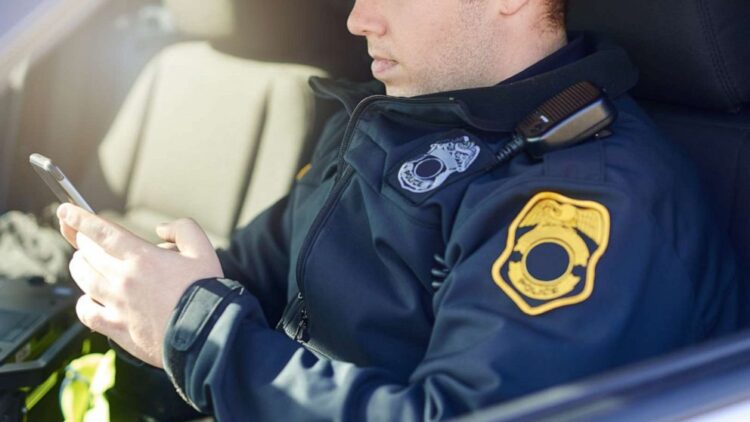Social media is a huge part of our everyday lives that is for sure. People rely on apps and websites like Facebook, Instagram, Twitter, Snapchat and others for direct messaging, sharing information and all kinds of communication. But, that’s not all. Social media is also a great way to share media which is what a lot of people love to do. And that is what law enforcement can use for investigation.
But, how can law enforcement use this for their benefit? Can videos, photos or posts on Facebook be used for evidence? If it can be used for evidence, should all police officers and other members of law enforcement get social media investigation training? These are some of the questions you might be asking yourself and these are the questions we’ll answer below.

The presence of social media
Before we can answer all of these questions that we posted above, we’ll first need to talk about the importance and presence of social media in our daily lives. This will give us an answer on why this information may be useful for the police or other investigative organizations.
The reality is that almost everyone is on social media nowadays because of the multiple benefits. It’s so prevalent these days that people who willfully do not use these platforms face multiple disadvantages in their lives, especially lack of communication and important information.
How law enforcement can benefit from social media investigation
Law enforcement around the world can use this to their advantage. They can use images, videos, posts, shares or even likes to support their cases.
For example, if a certain person is a suspect to property damage, but there is no concrete evidence if that person shares a video or a photo of the crash, or the property damage or even the damage on the car, police officers can use that against them.
However, this is not always seen as concrete evidence. This is still a very new form of investigation, so not all states, countries or judges will accept Facebook photos as proper evidence. But, it still may help the prosecutor to find the person responsible for the crime.
That is not all though. Social media can also bring other benefits for police officers. It may not provide with proper evidence every time, but it may give enough information to put the investigation in the right direction.
Here’s an example. If the police are looking for a certain criminal and they do not have any kind of information on their location, they can refer to social media. They can use features like hashtags or tagging that’s available on Facebook, Twitter or Instagram. If the person shares anything on any of these platforms, law enforcement can use this information to find them.
Alternatively, acquaintances or friends of this person may share an image or tag them that they are together.
This is a pretty basic explanation on how the police can benefit from this type of investigation, but you get the concept. We don’t have to explain every possible situation because there are probably millions of difference possible scenarios.
Additionally, there are tools out there today that can make an investigators job’s considerably easier as suggested by www.truepeoplecheck.com. Tools that can quickly gather information and process the data to make it easier for people to digest.

Should the police get social media investigation training?
Now comes the biggest question? Since social media is so prevalent in the world should all police officers or investigators get unique training for this type of investigation? Will it be worth the investment? Those are some difficult questions to answer because it’s not just about financial investment, it’s also a huge time investment.
Police officers and detectives already have to go through hundreds of hours of training, so you can imagine that these extra hours can cause an issue.
However, the effect of social media investigation is substantial, so we believe that it is actually quite important to implement this into the police force. Because if it has such a huge presence in the world today, you can imagine how important it will in the future.
So, it’s better to start this kind of training now rather than later
Will this be a future-proof investment?
The second most important question someone might ask is whether this kind of investment will be future-proof? Well, we already mentioned that social media will be even more prevalent in the next couple of years.
Who knows what Mark Zuckerberg will do with Facebook or Instagram after 10 years? Maybe The Metaverse will pick up and people will use VR/AR social media which will provide even more information for law enforcement.
Sure, anything is possible. It’s possible that Facebook might not exist 10 years from now, but the probability is that people will continue using social media. But, the training that law enforcement can get should apply to all platforms. It shouldn’t be limited to the current platforms.

Is it ethical?
The last question people might ask surrounding this subject is whether this type of investigation is ethical or moral. Well, these are always the toughest questions to answer. What is really the greater good?
Is it okay for the police to rummage around the internet and people’s private profiles to find information? Should Facebook or other platforms provide law enforcement with access to even more information to ensure that criminals get caught?
There really is no answer to these moral questions, so we’ll leave you to think about that.
Conclusion
Social media investigation is definitely very effective if done properly. For that to be done properly, investigators, detectives, and police officers should go through the proper training. They should also have access to the right equipment (computers, peripherals, etc.). So, it’s important to consider those expenses too.
Having access to state-of-the-art tools is also essential. This can considerably reduce the time needed for all internet-based investigations.








